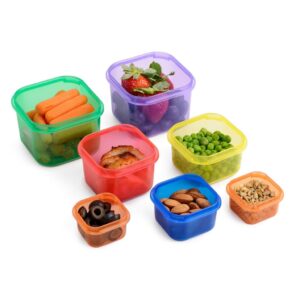Losing weight can feel like an uphill battle, especially with the sheer number of diet plans, exercise routines, and weight loss hacks out there. If you’re wondering what really works, you’re not alone. The truth is, there’s no one-size-fits-all solution, but certain strategies have proven to be effective for most people. In this article, we’ll explore some of the most successful methods that can help you shed those extra pounds in a healthy and sustainable way.
1. A Balanced Diet: The Foundation of Effective Weight Loss
One of the most crucial aspects of weight loss is what you eat. A well-balanced diet that includes whole foods, plenty of fruits and vegetables, lean proteins, and healthy fats is key. Crash diets may offer quick results, but they are rarely sustainable and can even harm your health in the long run.
Eat More Whole Foods

Whole foods like fruits, vegetables, whole grains, and lean proteins are nutrient-dense, meaning they provide a lot of nutrition without excess calories. By focusing on these foods, you naturally reduce your calorie intake without feeling deprived. They also help keep your blood sugar levels stable, which can prevent overeating later in the day.
Avoid Processed Foods
Processed foods are often high in sugar, unhealthy fats, and empty calories. These foods are easy to overeat and don’t provide the nutrients your body needs to feel full and satisfied. If you cut back on processed snacks, sugary beverages, and fast food, you’ll be on the right track to losing weight effectively.
2. Portion Control: Mindful Eating
Portion control plays a huge role in weight loss. Even if you’re eating healthy foods, consuming too much can lead to weight gain. One trick is to use smaller plates or bowls, which can help control how much you’re eating without feeling like you’re missing out.
Practice Mindful Eating

Mindful eating is all about paying attention to your food—savoring each bite and recognizing when you’re full. Often, we eat quickly or while distracted (like in front of the TV), which can lead to overeating. Take your time with meals, enjoy the flavors, and stop eating once you feel satisfied, not stuffed.
3. Regular Exercise: Move More, Lose More
Exercise is another key element of effective weight loss. It not only helps burn calories but also boosts your metabolism and builds lean muscle, which burns more calories at rest.
Combine Cardio and Strength Training
Cardiovascular exercises, like walking, jogging, cycling, or swimming, are great for burning calories and improving your heart health. But don’t forget strength training, like lifting weights or doing bodyweight exercises. Building muscle is essential for long-term fat loss because muscle tissue burns more calories than fat, even when you’re resting.
If you’re new to exercise, start small. A 20-minute walk a few times a week can make a big difference over time. As you build endurance, you can gradually increase the intensity and duration of your workouts.
Stay Active Throughout the Day
In addition to structured exercise, it’s important to stay active throughout the day. Small changes, like taking the stairs instead of the elevator, parking farther from the entrance, or doing household chores, can all add up and help you burn more calories.
4. Stay Hydrated: The Power of Water
Drinking plenty of water is essential for overall health and can aid in weight loss. Water helps flush out toxins, aids digestion, and can even suppress your appetite.
Drink Before Meals
One simple trick is to drink a glass of water before meals. This can help you feel fuller and prevent overeating. Sometimes, we mistake thirst for hunger, so staying hydrated can help you avoid unnecessary snacking.
5. Get Enough Sleep: The Hidden Weight Loss Factor
Sleep is often overlooked when it comes to weight loss, but it plays a critical role. When you’re sleep-deprived, your body produces more of the hormone ghrelin, which increases appetite, and less of the hormone leptin, which signals fullness. This can lead to overeating and cravings for unhealthy foods.
Aim for 7-9 Hours of Sleep
Getting 7-9 hours of quality sleep each night helps regulate these hormones and keeps your metabolism functioning properly. If you struggle with sleep, try establishing a bedtime routine, reducing screen time before bed, and creating a calm sleep environment.
6. Set Realistic Goals: Patience Is Key
When it comes to weight loss, slow and steady wins the race. Many people want quick results, but losing 1-2 pounds per week is a healthy and sustainable goal. Rapid weight loss can result in muscle loss, nutritional deficiencies, and a slower metabolism.
Celebrate Small Wins
Rather than focusing solely on the number on the scale, celebrate non-scale victories, such as improved energy levels, better sleep, or clothes fitting better. These small wins can keep you motivated throughout your journey.
7. Manage Stress: Mind-Body Connection
Stress can lead to emotional eating, where you turn to comfort foods high in sugar and fat. Finding healthy ways to manage stress, such as through meditation, yoga, or spending time with loved ones, can help prevent weight gain.
Practice Stress-Reducing Techniques
Incorporate relaxation techniques into your daily routine. Deep breathing, mindfulness meditation, and even a short walk in nature can work wonders for reducing stress levels. Keeping your stress in check will not only improve your mental health but can also keep you on track with your weight loss goals.
8. Stay Consistent and Be Patient
Consistency is the key to long-term success. While fad diets or extreme exercise routines might offer temporary results, they often aren’t sustainable. Making small, gradual changes to your lifestyle will lead to lasting weight loss and better overall health.
Don’t Be Too Hard on Yourself
Remember, no one is perfect. There will be days when you might overeat or skip a workout, and that’s okay. The important thing is to get back on track and stay committed to your long-term goals.
Conclusion: Find What Works for You
The most effective way to lose weight is by adopting a healthy, balanced approach that works for you. This includes eating nutritious foods, controlling portions, staying active, managing stress, getting enough sleep, and staying consistent. Everyone’s weight loss journey is different, so it’s important to find what fits your lifestyle and makes you feel good. By focusing on long-term health rather than quick fixes, you’ll not only lose weight but also improve your overall well-being.
The most effective way for losing weight can also be refer to this…
